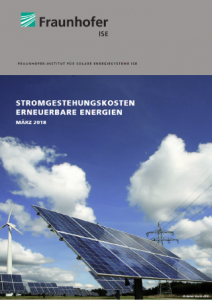
The city is to become cleaner and quieter: Under the heading "blue_village_Franklin", important future topics such as new mobility, energy efficiency, climate-optimised living or smart grids are being tested with the conversion of the former military area FRANKLIN. The SQUARE project, two model houses renovated according to the latest energy standards, and the electromobile bus lines 66 and 67 are part of this master plan. Franz Untersteller MdL, State Minister for the Environment, Climate and Energy Management, visited the two model projects in the new urban quarter on Tuesday, 4 August, as part of his summer tour "Environmental Future".
"With SQUARE, the city of Mannheim and the Mannheim housing association are showing a way to design climate- and energy-optimised living in existing buildings," said the Environment Minister during his visit. "It is impressive to see what has been implemented here in terms of building refurbishment, electromobility and smart grids. And it will be exciting to evaluate the results of this model project and make them usable for other projects."
Lord Mayor Dr. Peter Kurz explains: "With Franklin, an ecological urban quarter for over 9,000 people is being created that will set new standards. Our goal is to consume as little energy as possible throughout the district, to generate as much renewable energy locally as possible and to cause as few emissions as possible. In this context, the SQUARE model project presents two interesting approaches to solutions."
Back in 2014, the model project for energy-efficient building refurbishment SQUARE (smart quarter and urban area reducing emissions) was awarded a prize in the "Klimaschutz mit System" (Climate Protection with a System) competition run by the Baden-Württemberg Ministry of the Environment. The SQUARE project application was prepared by the City of Mannheim's Economic Development Department in cooperation with the Climate Protection Control Centre. Thanks to the award, SQUARE was able to be included in the ERDF funding programme at the time and supported with three million euros. "SQUARE stands for one of the most ambitious projects in the field of GreenTech and climate protection in the city of Mannheim in the past decade. It is one of the pioneering projects developed from the "Blue City Mannheim" strategy concept of the Economic Development Department. The green tech innovation strategy from 2013 is still highly topical and sets the course for climate-neutral mobility and smart grids," emphasizes Mayor Michael Grötsch.
GBG - Mannheimer Wohnungsbaugesellschaft finally successfully implemented the model project on FRANKLIN. The first tenants moved in at the end of 2019. The two almost identical buildings were renovated according to different standards, one building according to the EnEV standard (SQUARE now), the second building with passive house elements according to an EnerPhIT standard (SQUARE next). Technologies such as smart grids, seasonal heat storage using ice storage and intelligent mobility concepts are being tested. The total of 48 rental apartments are spread across 3- to 5-room apartments between 84 and 109 sqm. "We are very excited about the insights we will gain through SQUARE. According to the calculations and simulations, we can achieve a CO2 saving of more than 50 percent in the comparison of the two buildings. In order to be able to save even more CO2, we are relying on the generation of regenerative energies. The ENEV building therefore received a photovoltaic system, the EnerPhIT building a solar thermal system," explains Karl-Heinz Frings, Managing Director of GBG.
"This is where the city of the future with the energy system of the future is being created," explains Bernhard Schumacher, head of the Smart Cities business unit at Mannheim-based energy company MVV. To this end, MVV is using smart technologies and the new possibilities of digitalisation on Franklin and is linking the various sectors intelligently and efficiently with each other - "not only to bring electricity, water, heat and mobility to the district, but also to make the new district the beacon of a necessary energy turnaround at the same time". MVV is also demonstrating what is already possible today in terms of electromobility on Franklin. In addition to environmentally friendly car-sharing solutions, such as FRANKLIN mobil, publicly accessible charging points are being set up, which will be networked with the energy management system and made more flexible. At the same time, the heating sector also plays an indispensable role. MVV has therefore built an innovative low-temperature heating grid here, which also enables the efficient integration of renewable energies.
Another item on the agenda of the visit is the three electric buses of the type E-Citaro, which have been in operation in Franklin on line 67 since April 2019. One of the buses was also funded under SQUARE. The environmentally friendly buses run every 20 minutes between the conversion areas on Franklin and the Käfertal Bahnhof stop. This will give people who already live, work or go to school in Franklin a direct connection to the rnv public transport network. "We are delighted to have EvoBus as a strong partner for this forward-looking project right on the spot," says Martin in der Beek, Technical Managing Director of rnv. "Over the past year, we have gained a lot of valuable knowledge in the operation of conventional electric buses and at the same time proved that the technology can stand up to the rigours of everyday public transport." In the future, however, other forms of propulsion will also be examined, he added. "We are currently looking intensively at the use of hydrogen buses in public transport and will soon be testing this technology at the rnv," reveals in der Beek. "Traveling by public transport is already more environmentally friendly per se than traveling by car, but we want to do even more for climate protection and therefore also convert our vehicle fleet to emission-free drives as far as possible."
Source: PM from 4.8.2020
Keywords: Stock, News Blog Baden-Württemberg



